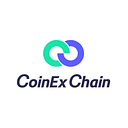CSC|How to Become a CSC Validator
During the six months since the launch of its mainnet, CSC, a PoS-based public chain fully compatible with Ethereum, has made many improvements and worked out strategic plans. From a technical perspective, apart from CSC’s support of NFT protocols, the CSC team has also adopted many convenient functions and optimizations for the CSC Explorer. In terms of project introduction, the smart chain has launched the $10 million support program, the $5 million metaverse support program, and hosted its first hackathon program.
The №1 concern for CSC, a “decentralized operating system” in the blockchain space, is to make crypto opportunities more widely available.
CSC intends to build a collaborative decentralized blockchain for the joint development of a DeFi ecosystem. It aims to build new infrastructures with reduced costs. To this end, CSC has also provided funding and support for early-stage infrastructure building. Additionally, as CSC’s code is fully open-source and verifiable, each user can check and utilize the code and assess its security relying on their own crypto expertise.
All-new consensus for 101 validators
To get started with blockchain technology, one still faces a high threshold. That said, how can the average CSC user become more involved in building the smart chain? To answer this question, we have to talk about CSC’s validators.
CSC uses a unique CPoS consensus mechanism, which differs from that adopted by other public chains.
Combining PoS with PoA, the latest CPoS boasts the following features:
1、Blocks are generated by a limited number (101) of validators;
2、Validators generate blocks in turn according to the PoA mechanism;
3、According to the staking-based governance mechanism, validators will be elected every 200 blocks, and only the selected nodes will become CSC validators.
This new consensus mechanism brings incredible rewards to validators, token holders, developers, and users sharing the same blockchain. Moreover, the excellent performance and large capacity of CSC mean that it could accommodate more innovative possibilities. Since anyone can delegate CET to a validator and become a stakeholder, the average CET holder can also join the game and become a validator by staking CET.
Minimum hardware requirement for running a node on CSC:
CPU: 8Core
RAM: 16 GB
Disk: SSD 500GB
On CSC, there are two kinds of validators: candidate validators and selected validators. A candidate validator has to stake at least 10,000 CET, and each subsequent staking must be no less than 1,000 CET. A selected validator is one of the top 101 candidate validators in terms of the total CET delegation (its own CET holding held by itself + delegation). It should be emphasized that the validators will be elected according to the latest ranking every 200 blocks.
How to stake CET and become a CSC validator
Validators are an essential part of the CSC ecosystem. The network depends on them for its normal operation. By supporting network operation and processing network activities, they can also get considerable rewards. A validator has two major sources of revenue: block reward and transaction fees in each block.
Once you start CSC, system contracts relating to the validator will be initialized, and anyone can delegate CET to the validator by directly calling contracts. For more details, please refer to the Run document: https://docs.coinex.org/#/validator_cli
Right now, there are 67 CSC validators. Given that the total number is capped at 101, there is still room for participation. Suppose you have less than 10,000 CET, you can also join an existing validator by delegating over 1,000 CET to it. It should be noted that CSC rewards are distributed to validators, instead of the regular stakeholders. Therefore, if you plan to get rewards by joining an existing validator, then you must negotiate how the rewards will be distributed with the validator so that offline distribution will be possible after it received the CSC rewards.
At the moment, the best CSC validator is IFPool, which is a validator from an on-chain project that has obtained 100 million CET from 530 delegators. In less than five months, IFPool has received 15,333 CET rewards on a daily average. Moreover, its total CET rewards exceeded 380,000 CET in less than one month.
The high rewards for validators have brought fierce competition. As of December 9, 2021, each of the top 59 validators holds over 1 million CET, and the holdings of the top 4 all exceed 5 million CET.
Working together to build a decentralized ecosystem
Recently, IFSwap was launched on CSC and offered airdrops. The number of promising and trending CSC-powered projects is on the rise. These outstanding projects will attract new users and drive up CSC’s trading volume, thus bringing more profits to validators. As validators improve in terms of both quantity and quality, CSC will become higher-performing, which will boost the development of existing projects and attract new users, giving shape to a recirculating ecosystem.
CET holders profit from validators, and big individual/institutional holders can become validators to get rewards while contributing to the growth of the CSC ecosystem.
CSC allows everyone to get involved, making joint efforts to build a decentralized future.
